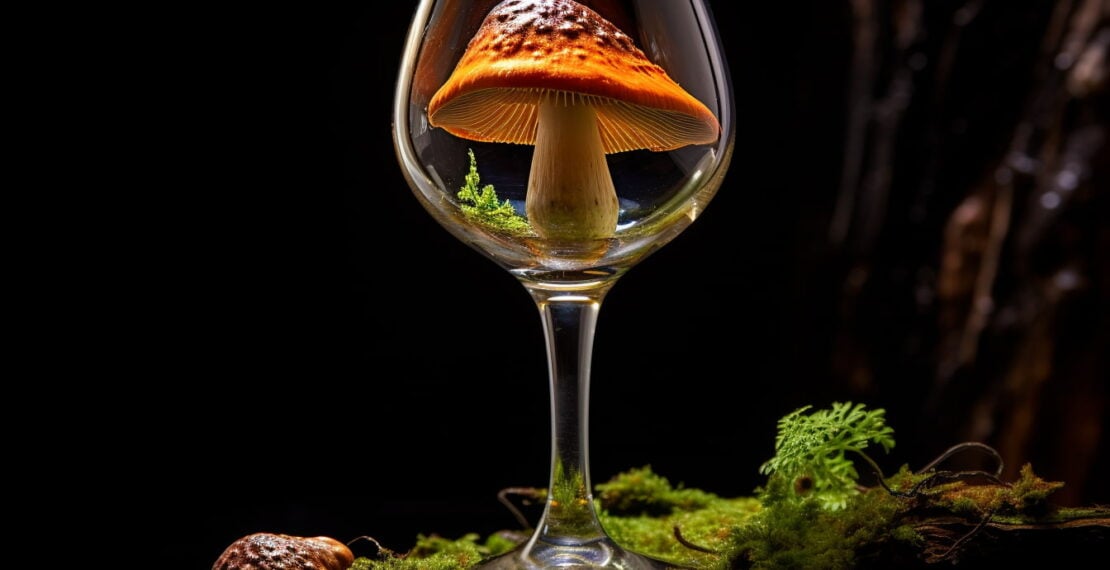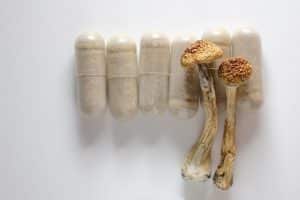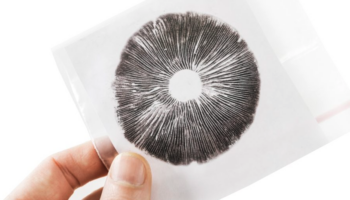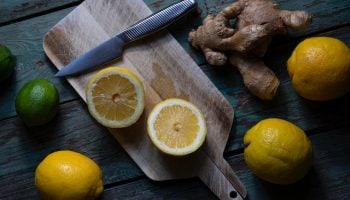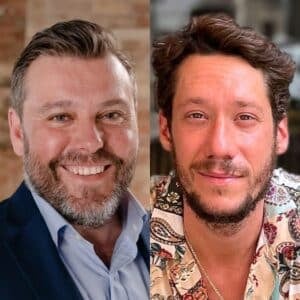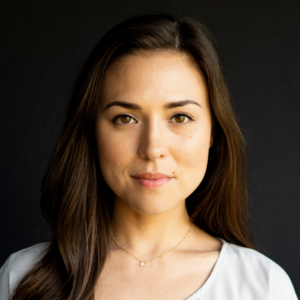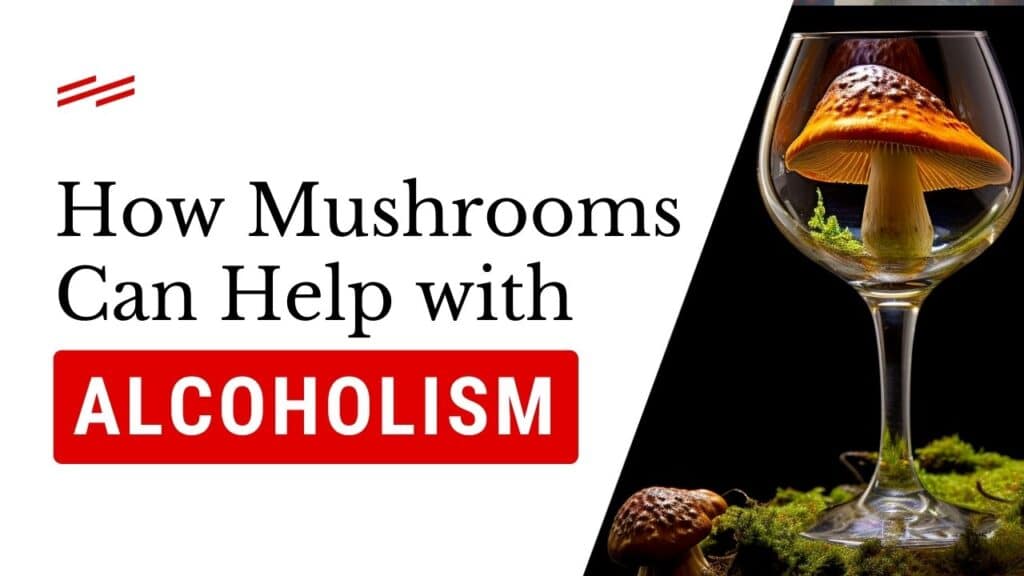
Disclaimer: Psychedelics are largely illegal substances, and we do not encourage or condone their use where it is against the law. However, we accept that illicit drug use occurs and believe that offering responsible harm reduction information is imperative to keeping people safe. For that reason, this document is designed to enhance the safety of those who decide to use these substances.
This article has been medically reviewed by Katrina Oliveros, MSN-ED, BSN
Maria Katrina, is a trauma-informed Wellness Educator and Psychedelic Harm Reduction Consultant. Beyond nursing, she supports health & wellness teams through medical aid, psychedelic harm reduction, and integration services.
Across the globe, indigenous communities have used hallucinogenic substances to treat alcohol addiction for decades. And from the dawn of Western psychedelic research, scientists have long recognized this potential.
Read below to explore psilocybin mushrooms for alcoholism, current research in this field, and legal treatment options.
The Burden of Alcoholism
Throughout the pandemic, with more people binge drinking, the Canadian government directly attributed an unexpected 7.6% increase in alcohol-related deaths to Covid-19. To date, statistics now reveal 5.3% of all deaths annually worldwide are a consequence of harmful alcohol use.
With detrimental effects on the health, social, and work lives of those affected, alcohol use disorder (AUD) marks a significant public health concern. Moreover, despite the multitude of existing therapies, including medications, counseling, and group support, recovery rates are seriously low, with less than half of patients recovering following a year of treatment.
For this reason, mental health researchers are actively trying to find more effective ways to treat AUD.
Psilocybin mushrooms for alcoholism could provide a solution.
Psychedelics and Alcohol Use Disorder
The late Humphrey Osmond, who famously coined the term “psychedelics” to describe hallucinogenic substances, was a major pioneer in psychedelic research.
Osmond’s primary interest lay in how psychedelic compounds, when given in carefully controlled conditions, could help cure substance-abuse disorders, and alcoholism in particular. Between 1954 and 1960, he treated nearly 2000 alcoholics with LSD, finding 40 to 45% of his patients ceased drinking entirely one year following treatment.
Despite the success of Osmond and other psychedelic researchers at the time, psychedelic research for addiction and other mental health conditions largely stopped following the 1970s’ war on drugs.
It wasn’t until 2014 that researchers began re-exploring the potential for psychedelic drugs in curing substance abuse, with a pilot study from Johns Hopkins University showing how doses of psilocybin could help people give up smoking.
Since then, contemporary research into psychedelics and addiction has seen several proof-of-concept pilot studies and clinical trials published.
For example, in 2019, Johns Hopkins researchers conducted an online survey investigating psychedelics and alcoholism, finding that after a psychedelic experience, 83% of participants had either ceased drinking or decreased alcohol consumption so much that they no longer met the alcohol use disorder criteria.
One year later, the team conducted a similar study investigating psychedelics and stimulants, cannabis, and opioid addiction. Their results demonstrated that participants qualifying for a substance abuse disorder decreased from 96% before psychedelic treatment to 27% after.
The Healing Powers of Psilocybin Mushrooms for Alcoholism
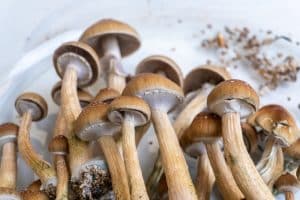
Although psilocybin, the active ingredient in magic mushrooms, may have been used in healing for centuries, it’s only within the past decade this psychedelic substance has taken mental health treatment by storm.
In recent years, numerous clinical trials of psilocybin have found that the medicine has significant long-lasting outcomes for several psychological disorders, including:
- Depression (both major depressive disorder and treatment-resistant depression)
- Obsessive-compulsive disorder
- Anxiety associated with end-of-life illness
- Smoking addiction
One of the reasons researchers believe psilocybin is so helpful in therapy is because it increases cognitive flexibility: the ability to learn and more easily change thought and behavior patterns.
Underlying this flexibility is psilocybin’s interaction with 5-HT2A receptors, proteins that normally respond to the chemical messenger serotonin. By interacting with 5-HT2A, psilocybin increases the production of brain-derived neurotrophic factor (BDNF), a molecule important for rewiring and growing new nerve cell connections.
You can learn more about what happens to your brain on psilocybin by checking out our neuroscience of psilocybin article here.
By increasing neural flexibility, psilocybin could be a particularly valuable tool for AUD, helping patients re-frame and change their unhealthy addictive habits and behaviors.
Moreover, when working with a psychotherapist, doses of psilocybin can help patients dive into the traumas underlying their addiction and gain new perspectives about why they might behave the way they do. By understanding the roots of their addiction, they may be encouraged to make changes in their personal social lives accordingly, improving their wellbeing and reducing the need to “escape” through alcohol abuse.
Demonstrating other mechanisms of psilocybin for AUD, an experiment from the University of Heidelberg, found alcohol-craving behaviors in rats could be explained by reduced functioning of the glutamate receptors in the prefrontal cortex of their brain.
If the rats were given psilocybin, their glutamate function was restored, and there was a significant reduction in their alcohol relapse behaviors, suggesting psilocybin can repair neurological damage associated with alcoholism. However, there’s no human evidence to confirm these findings to date.
Psilocybin Therapy for Alcohol Addiction
Based on these logics and successes from early studies, a relatively new study from researchers at New York University (NYU) investigated whether psilocybin-assisted therapy was beneficial for alcohol dependence.
For the NYU study, published in the journal JAMA Psychiatry, 93 participants, classed as heavy drinkers, were offered 12 weeks of psychotherapy sessions combined with either psilocybin or an antihistamine placebo control. The study was a randomized, double-blind trial, meaning the participants and their therapists didn’t know if they were receiving psilocybin or the placebo drug.
From before to after treatment, those given psilocybin-assisted therapy reduced their heavy drinking days by 83%, in comparison to the placebo group, which had a 51% reduction. Moreover, after eight months following their first dose of psilocybin, almost half of the participants from the psilocybin group had stopped drinking altogether.
Jon Kostas is one of these participants. Having developed a drinking problem at age 12, he had exhausted all options for sobriety. Nothing worked until he took psilocybin as part of the trial in 2015, and he hasn’t drunk alcohol since.
“I’m forever grateful and indebted, this saved my life,” he was quoted in an Associated Press release following the study.
There were various limitations to the trial. For example, it was difficult to keep the study blind, since it was apparent to patients in the placebo group they hadn’t taken psilocybin. Nevertheless, the results are promising for future psilocybin and alcohol research.
“Psilocybin administered in combination with psychotherapy was associated with robust and sustained decreases in drinking, which were greater than those observed following active placebo with psychotherapy,” wrote Dr. Michael Bogenschutz, director of the NYU Center for Psychedelic Medicine and lead study author.
“These results provide support for further study of psilocybin-assisted treatment for adults with AUD.”
Grow 1 Year's Worth of Microdoses in Just 6 Weeks
Third Wave partnered with top mycologists to create the world’s easiest and best mushroom growing program (kit, course, and expert support).
- Pre-sterilized and sealed
(ready to use out of the box) - Step-by-step video and text course
- Access to growing expert in community
- Make your first harvest in 4-6 weeks
- Average yield is 1 - 4 ounces (28-108g)
- Fits in a drawer or closet
- Enter info for Third Wave discounts:
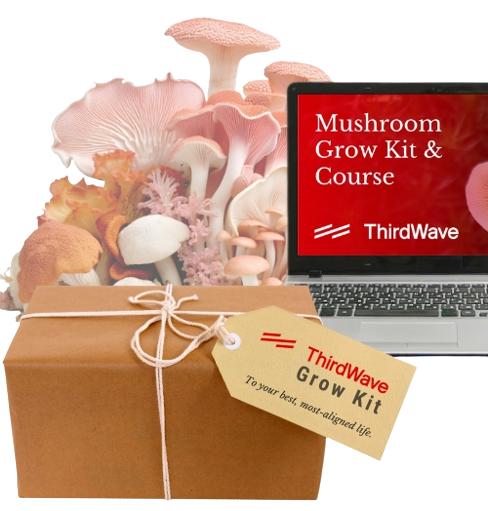
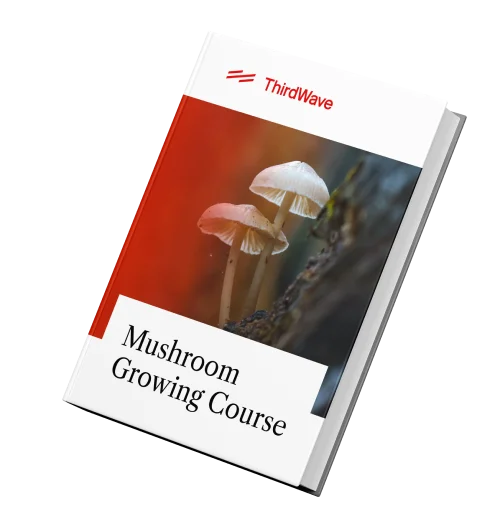
Grow 1 Year's Worth of Microdoses in Just 6 Weeks
Third Wave partnered with top mycologists to create the world’s easiest and best mushroom growing program (kit, course, and expert support).
- Pre-sterilized and sealed
(ready to use out of the box) - Step-by-step video and text course
- Access to experts in community
- Make your first harvest in 4-6 weeks
- Average yield is 1 - 4 ounces (28-108g)
- Fits in a drawer or closet
- Enter info for Third Wave discounts
Microdosing Psilocybin Mushrooms for Alcoholism
Microdosing has similarly been shown to have vast potential for positive mental health effects, including on addiction. However, it’s important to note that microdosing research is currently less scientifically rigorous than psychedelic therapy clinical trials, since the majority of benefits are based mainly on anecdotal reports.
You can learn more about the advantages of microdosing, and how to use microdosing to optimize the likelihood of these benefits, by checking out our science-backed comprehensive Microdosing Course.
Regarding microdosing and alcoholism, in the pioneering University of Toronto study “Psychedelic microdosing benefits and challenges: an empirical codebook,” researchers analyzed qualitative reports of 278 microdosers. They found reduced symptoms, which “made references to reduced substance dependence,” appearing in nine of the reports.
In addition, various anecdotal reports on trip-report websites, such as Erowid, indicate how microdosing has helped them overcome addiction to substances such as caffeine.
Although the mechanisms of microdosing are much less clear than large doses of psilocybin, researchers from the Beckley Foundation found microdosing LSD could increase BDNF in study participants. As such, microdosing may also improve cognitive flexibility and could potentially help change addictive behavior patterns in people with AUD.
Legally Accessing Psilocybin for Alcoholism
If you or somebody close to you is struggling with AUD, and you’re curious to see if psilocybin could help, there are different options you could take to access the medicine legally.
Is Psilocybin Legal in the US?
In the US, several regions have decriminalized psilocybin, meaning owning or growing small amounts for personal use is no longer a law-enforcement priority.
However, since the Drug Enforcement Administration (DEA) categorizes psilocybin as a Schedule 1 drug, the compound remains largely illegal on a federal level. For most people, psilocybin treatments can only be accessed by participating in clinical research.
Nonetheless, as more research about the beneficial psychological effects of psilocybin comes to light, these restrictions are beginning to change.
For example, recently passed laws in Oregon and Colorado have allowed for the supervised therapeutic use of psilocybin in designated treatment centers, including treatment for addiction.
Additionally, the Biden administration recently sent a letter anticipating FDA approval for psilocybin as a designated depression treatment in the next two years.
Legal Psychedelic Retreats

Across the globe, there are several places you can attend a legally operating psilocybin retreat. These include:
- The Netherlands (although psilocybin is only legally available in the form of magic truffles)
- South America: Colombia and Brazil (however, only as “magic mushrooms” and not psilocybin)
- Central America: Costa Rica (only as “magic mushrooms”) and Mexico (as long as mushrooms are being used in traditional ceremonies)
- The Caribbean: Jamaica and the Bahamas
It’s important to note that although many of the psilocybin retreats operating in these countries are therapeutic in nature, they often don’t occur within a typical Western medical framework, taking a much more shamanic and holistic approach.
For this reason, if you have a clinical diagnosis for a mental health condition, make sure your retreat center can provide adequate psychological support for your needs. If you’re currently working with a psychotic disorder, taking psilocybin in any context is not advised.
Another point to consider is that many of these retreats abroad are unregulated, which brings about potential risks from the danger of malpractice and abuse of power.
Therefore it’s essential you do lots of research beforehand to ensure your retreat center of choice is safe, well-reviewed, and in line with your needs.
You can find guidance on choosing the best retreat by checking out our psychedelic retreat guide. By visiting the Third Wave’s psychedelic retreat directory, you can also find a collection of vetted high-quality retreat centers operating in several places across the globe.
Grow 1 Year's Worth of Microdoses in Just 6 Weeks
Third Wave partnered with top mycologists to create the world’s easiest and best mushroom growing program (kit, course, and expert support).
- Pre-sterilized and sealed
(ready to use out of the box) - Step-by-step video and text course
- Access to growing expert in community
- Make your first harvest in 4-6 weeks
- Average yield is 1 - 4 ounces (28-108g)
- Fits in a drawer or closet
- Enter info for Third Wave discounts:


Grow 1 Year's Worth of Microdoses in Just 6 Weeks
Third Wave partnered with top mycologists to create the world’s easiest and best mushroom growing program (kit, course, and expert support).
- Pre-sterilized and sealed
(ready to use out of the box) - Step-by-step video and text course
- Access to experts in community
- Make your first harvest in 4-6 weeks
- Average yield is 1 - 4 ounces (28-108g)
- Fits in a drawer or closet
- Enter info for Third Wave discounts
Ketamine as a Legal Alternative to Psilocybin Mushrooms for Alcoholism
Multiple pieces of evidence have found ketamine, the atypical dissociative psychedelic can help prolong abstinence and reduce cravings in substance-use disorders, including AUD.
In the US and many other countries across the globe, ketamine is classified in a lower drug schedule than psilocybin. If you’re unable to travel somewhere psilocybin is legal, you could consider ketamine-assisted therapy or a therapeutic ketamine retreat as a legal alternative.
Disclaimer: Ketamine research indicates it’s a powerful tool for addiction and mental health. Still, ketamine has addictive potential itself. Patients must speak with their doctors about these risks before exploring ketamine-assisted therapy.
Where Can I Legally Microdose Psilocybin?

If you’re interested in microdosing for AUD, it’s first and foremost essential to make sure you’re in a country where buying magic mushrooms is legal
Countries where you can legally buy psilocybin mushrooms, truffles, and spores include:
- Jamaica
- The Bahamas
- Brazil
- The Netherlands
- South Africa (although legally, this is a gray area)
- Costa Rica (similarly, legality is a gray area)
For more information on where mushrooms are legal across the world as well as the changing legality of psilocybin and the organisms that contain it, check out our “Guide to the Legality Of Psilocybin Mushrooms.”
Buying the spores rather than the mushrooms? Be sure to check out the Third Wave’s Mushroom Growing Kit, as it will provide you with all the equipment and information you need (aside from the spores) for abundant harvests.
Once you’ve sourced your medicine, it’s essential to follow a carefully-planned therapeutic protocol. Consider following our personally-optimized microdosing course to get the most out of your microdosing healing experience.
Psilocybin Mushrooms for Alcoholism: The Bottom Line
Psilocybin could be a revolutionary treatment for AUD. However, with only one formal clinical trial to date, more published research will be necessary if it’s to become accepted as a medical treatment.
Since this research is still in its early stages, and since each person’s trauma and healing journeys are so personal, we can’t make any conclusions about whether or not psilocybin mushrooms for alcoholism is a suitable addiction treatment.
However, new research for psilocybin’s therapeutic effects and neurological impact continues to grow. The future of psilocybin treatments for addiction is hopeful.
Interested in using psilocybin for their therapeutic benefits, including helping with alcohol abuse?
Visit Third Wave’s psychedelic retreat directory where you can find a collection of vetted high-quality psilocybin retreat centers and psilocybin clinicians/coaches operating in several places across the globe.
Grow 1 Year's Worth of Microdoses in Just 6 Weeks
Third Wave partnered with top mycologists to create the world’s easiest and best mushroom growing program (kit, course, and expert support).
- Pre-sterilized and sealed
(ready to use out of the box) - Step-by-step video and text course
- Access to growing expert in community
- Make your first harvest in 4-6 weeks
- Average yield is 1 - 4 ounces (28-108g)
- Fits in a drawer or closet
- Enter info for Third Wave discounts:


Grow 1 Year's Worth of Microdoses in Just 6 Weeks
Third Wave partnered with top mycologists to create the world’s easiest and best mushroom growing program (kit, course, and expert support).
- Pre-sterilized and sealed
(ready to use out of the box) - Step-by-step video and text course
- Access to experts in community
- Make your first harvest in 4-6 weeks
- Average yield is 1 - 4 ounces (28-108g)
- Fits in a drawer or closet
- Enter info for Third Wave discounts

